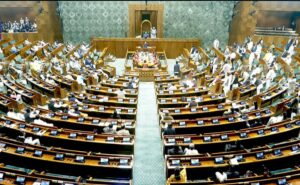Last-minute fight over the Fed’s lending powers is hampering Covid stimulus deal

The U.S. Capitol building is seen following the 2020 U.S. presidential election in Washington, U.S., November 6, 2020.
Erin Scott | Reuters
A last-minute fight over the Federal Reserve’s lending powers has become the latest hurdle for lawmakers of both parties hoping to pass a $900 billion coronavirus stimulus bill.
Though the atmosphere on Capitol Hill remained upbeat on the odds of a deal, Democrats are criticizing Sen. Pat Toomey, R-Pa., in the hopes he will drop stipulations about a new sticking point: the Fed’s lending programs.
If the Pennsylvania senator’s language is adopted, it would ensure that the incoming administration won’t be able to revive the Fed’s emergency lending programs.
“This is the most important thing to me,” Toomey told reporters on Thursday. He added that his stance is about “preventing the Fed from being politicized” and “not at all an effort to in any way hamstring the Biden administration or weaken our economy.”
Sen. Pat Toomey, R-Pa.,
Bill Clark | CQ Roll Call | Getty Images
Democrats worried about record-setting levels of new Covid infections say Toomey and other Republicans are working to tie President-elect Joe Biden’s hands before his inauguration.
“While we are encouraged by the bipartisan effort underway to provide critical relief to millions of Americans, the package should not include unnecessary provisions that would hamper the Treasury Department and the Federal Reserve’s ability to fight economic crises,” Brian Deese, Biden’s incoming National Economic Council director, said in a statement.
“Undermining that authority could mean less lending to Main Street businesses, higher unemployment, and greater economic pain across the nation,” he added.
A spokesman for Toomey did not immediately respond to CNBC’s request for comment.
Congress granted the Fed extraordinary lending powers in March through the $2.2 trillion CARES Act, allowing the central bank to provide loans to small- and medium-sized business, as well as to state and local governments, as many struggled with sharp revenue losses thanks to Covid-19.
The Fed said it wanted the programs extended but will now have to return the unused capital committed to the facilities.
Those expanded lending powers will expire at the end of the year after Treasury Secretary Steven Mnuchin declined to ask Congress for an extension. Janet Yellen, Biden’s nominee for Treasury secretary, could in theory ask lawmakers for the power to reinstitute the programs if Toomey’s language is omitted.
Mnuchin said in November that up to $800 billion in potential firepower can be deployed if needed through the Exchange Stabilization Fund and elsewhere, adding “we don’t need to buy more corporate bonds. The municipal market is working, people are able to borrow lots of money in the markets.”
Just a few minutes before Mnuchin’s interview on Nov. 20, Chicago Fed President Charles Evans told CNBC the Treasury move was “disappointing.”
Most of the original funds allocated, about $429 billion, were not used or lent out and will instead be repurposed to pay for a large portion of the current bill that is being negotiated.






